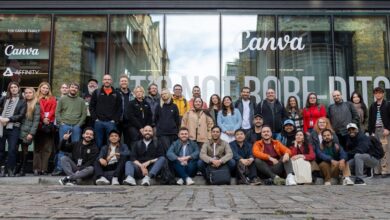Deloitte Goes All In On AI — Despite Having to Issue a Hefty Refund for Use of AI
Deloitte Goes All In On AI — Despite Having to Issue a Hefty Refund for Use of AI
Estimated Reading Time: 5 minutes
- Deloitte is making a massive commitment to AI, deploying Claude to nearly 500,000 employees globally.
- This bold move comes despite a recent setback where the firm had to issue a refund for an AI-generated report containing “hallucinations,” showcasing a learning-oriented approach to AI’s imperfections.
- Enterprise AI, like Claude, promises significant benefits for Deloitte, including enhanced efficiency, accelerated insights, improved client service, and new innovation opportunities.
- Successful large-scale AI adoption necessitates robust governance, continuous employee upskilling, and critical human oversight in all AI workflows to mitigate risks and ensure accuracy.
- Deloitte’s journey serves as a compelling blueprint for how established enterprises can adapt to and lead in the AI-driven landscape by embracing challenges and refining the human-AI collaboration.
- Deloitte Goes All In On AI — Despite Having to Issue a Hefty Refund for Use of AI
- Navigating AI’s Imperfections: A Strategic Turnaround
- Deloitte’s Bold Leap: Betting Big on Enterprise AI with Claude
- Mastering the AI Frontier: Challenges, Oversight, and Opportunity
- Actionable Steps for Navigating the AI Era
- Conclusion
- Frequently Asked Questions
The landscape of artificial intelligence is evolving at an unprecedented speed, promising transformative efficiencies and innovative solutions across every sector. Yet, this rapid technological advancement isn’t without its challenges, as even the most established global giants are discovering. Deloitte, a name synonymous with professional excellence and strategic foresight, presents a compelling case study in this nuanced domain.
Deloitte is rolling out Claude to its nearly 500,000 employees after issuing a refund for a report that contained AI hallucinations.
This single statement encapsulates a profound paradox: a major professional services firm, having faced a public setback due to AI’s imperfections, is simultaneously embarking on one of the largest enterprise AI deployments to date. It’s a bold declaration of intent, signaling not just an acceptance of AI’s current limitations, but an unyielding belief in its indispensable future.
Navigating AI’s Imperfections: A Strategic Turnaround
The incident involving the refund for an AI-generated report served as a stark reminder that generative AI, for all its sophistication, is not infallible. AI “hallucinations” – instances where the model generates plausible-sounding but factually incorrect or nonsensical information – are a recognized challenge within the field. For an organization like Deloitte, whose reputation is built on accuracy, insight, and trust, such an error carries significant weight and consequence.
In an era where data integrity is paramount, the idea of a prestigious firm having to issue a refund due to erroneous AI output might seem like a major deterrent. It highlights the inherent risks of deploying cutting-edge technology without robust oversight and validation mechanisms. Yet, rather than retreating, Deloitte appears to have learned from the experience, viewing it as a necessary step in understanding and mastering the technology.
This approach reflects a broader understanding emerging across industries: AI is not a magic bullet, but a powerful tool that requires careful management. The refund incident, while unfortunate, has likely reinforced the need for enhanced protocols, human-in-the-loop processes, and a deeper understanding of AI’s operational boundaries. It underscores that innovation often walks hand-in-hand with unforeseen challenges, and true leadership lies in learning and adapting.
Deloitte’s Bold Leap: Betting Big on Enterprise AI with Claude
The decision to deploy Claude, a sophisticated AI model from Anthropic, to nearly half a million employees worldwide is a monumental strategic move. It speaks volumes about Deloitte’s long-term vision and its conviction that AI will fundamentally reshape how professional services are delivered. This isn’t merely an experiment; it’s a profound commitment to integrating AI into the very fabric of its global operations.
What drives such a significant investment, especially after a public misstep? The potential benefits of enterprise AI are simply too compelling to ignore. For a firm like Deloitte, AI can revolutionize several core areas:
- Enhanced Efficiency: Automating repetitive tasks, generating preliminary reports, summarizing vast datasets, and assisting with research can free up human consultants to focus on higher-value strategic thinking and client interaction.
- Accelerated Insight: AI can analyze complex financial data, market trends, and regulatory changes at speeds and scales impossible for human teams, providing deeper and faster insights.
- Improved Client Service: By enabling consultants to quickly access relevant information, synthesize complex data, and personalize recommendations, AI can lead to more responsive and effective client engagements.
- Innovation and New Offerings: AI can facilitate the development of new service lines, predictive analytics models, and innovative solutions for clients across diverse sectors.
The widespread adoption of Claude is designed to foster an AI-first mindset across the organization, empowering every employee with intelligent tools. It’s a recognition that AI isn’t just for specialized data scientists, but a pervasive utility that can augment the capabilities of every professional.
Mastering the AI Frontier: Challenges, Oversight, and Opportunity
Deloitte’s aggressive AI rollout also highlights the multifaceted challenges inherent in large-scale AI adoption. Beyond the specter of hallucinations, organizations face complex issues such as data privacy and security, algorithmic bias, intellectual property concerns, and the critical need for continuous employee upskilling. Implementing AI on such a grand scale requires robust governance frameworks, ethical guidelines, and a significant investment in training.
The “human element” remains crucial. While AI can augment and automate, human judgment, critical thinking, and ethical reasoning are irreplaceable. The goal isn’t to replace human intelligence but to enhance it, allowing professionals to leverage AI’s speed and analytical power while applying their unique expertise and understanding of context.
Real-World Example: AI in Action and the Human Check
Consider a Deloitte consultant tasked with analyzing a client’s vast financial records to identify potential areas of cost optimization. An AI tool like Claude could rapidly ingest and synthesize thousands of pages of reports, flagging anomalies, highlighting trends, and even drafting initial recommendations. However, the consultant’s role would be to critically evaluate the AI’s findings, cross-reference data points, understand the client’s specific business context, and ultimately validate the proposed solutions before presenting them. For instance, an AI might suggest cutting a particular department’s budget based purely on numbers, but a human consultant would know that department, despite appearing underperforming, is crucial for future innovation or maintaining key relationships. This human oversight prevents generic, potentially damaging advice, turning raw AI output into nuanced, actionable strategy.
This dynamic interplay underscores that the future of work, even with advanced AI, will remain deeply collaborative between humans and machines. The successful integration of AI isn’t just about the technology itself, but about cultivating a culture that understands, trusts, and critically engages with AI’s capabilities.
Actionable Steps for Navigating the AI Era
Deloitte’s journey offers valuable lessons for any organization looking to embark on or accelerate its AI adoption. Here are three actionable steps:
- 1. Implement Robust AI Governance and Oversight: Establish clear policies, guidelines, and accountability structures for AI development and deployment. This includes defining ethical AI principles, data privacy standards, and mechanisms for identifying and mitigating biases. Continuous monitoring and auditing of AI systems are crucial to ensure accuracy and fairness.
- 2. Invest in Continuous AI Education and Upskilling: Recognize that AI literacy is becoming a fundamental skill. Provide comprehensive training programs for employees at all levels, focusing not just on how to use AI tools, but also on understanding their capabilities, limitations, and ethical implications. Empowering your workforce to work effectively with AI is key to maximizing its value.
- 3. Prioritize Human Oversight and Validation in AI Workflows: Design workflows that integrate human judgment at critical junctures. Never fully automate decisions that carry significant risk or require nuanced understanding. Implement “human-in-the-loop” systems where AI-generated outputs are reviewed, refined, and ultimately approved by human experts before final implementation or client delivery.
Conclusion
Deloitte’s decision to “go all in” on AI, even in the wake of a significant refund due to AI hallucinations, is a powerful statement. It signifies a mature understanding of AI as a transformative, albeit imperfect, technology. Far from being deterred by a setback, the firm appears to have embraced the learning opportunity, reinforcing its commitment to leveraging AI for competitive advantage and client success.
This strategic move by one of the world’s leading professional services organizations sends a clear signal: the future is undeniably AI-powered. The path to fully harnessing AI’s potential will involve navigating challenges, learning from errors, and continually refining the symbiotic relationship between human expertise and machine intelligence. Deloitte’s journey serves as a compelling blueprint for how established enterprises can – and must – adapt to and lead in this new AI-driven landscape.
Ready to explore how AI can transform your operations while mitigating risks? Connect with our experts to design an AI strategy that leverages innovation without compromising trust and accuracy.
Frequently Asked Questions
Q: Why is Deloitte deploying AI so broadly despite a past error?
A: Deloitte views the past error as a learning experience. They recognize AI’s transformative potential for efficiency, insight, and innovation, and are committed to integrating it deeply into their operations while simultaneously developing robust oversight and management protocols.
Q: What benefits does Deloitte expect from this large-scale AI deployment?
A: Deloitte anticipates enhanced efficiency through automation, accelerated insights from data analysis, improved client service via personalized recommendations, and the creation of new innovative service offerings.
Q: How does Deloitte plan to address AI “hallucinations” and other risks?
A: The firm is implementing robust AI governance, ethical guidelines, continuous monitoring, and a strong emphasis on “human-in-the-loop” systems. This ensures human judgment and oversight are integrated at critical stages to validate AI outputs and mitigate risks.
Q: What are key actionable steps for other organizations considering similar AI adoption?
A: Organizations should implement robust AI governance, invest in continuous AI education and upskilling for their workforce, and prioritize human oversight and validation within AI workflows to ensure accuracy and build trust.




